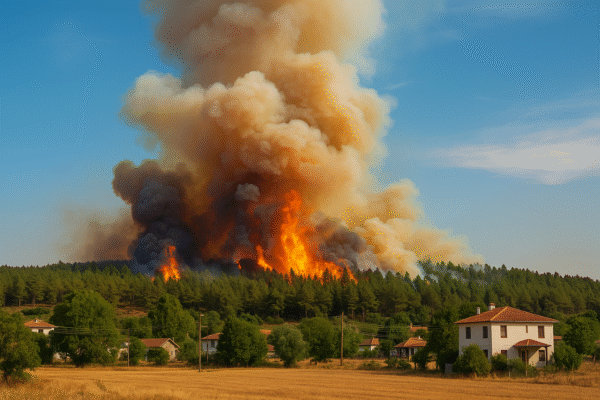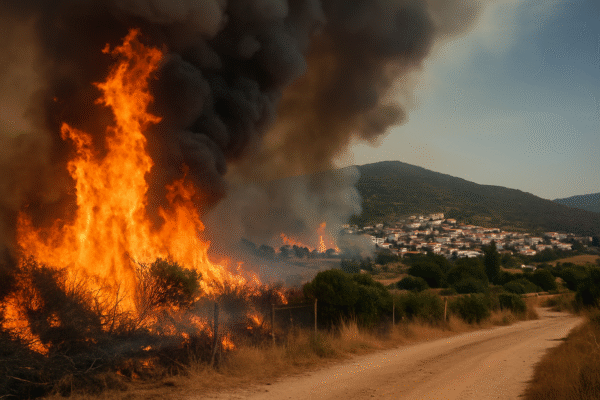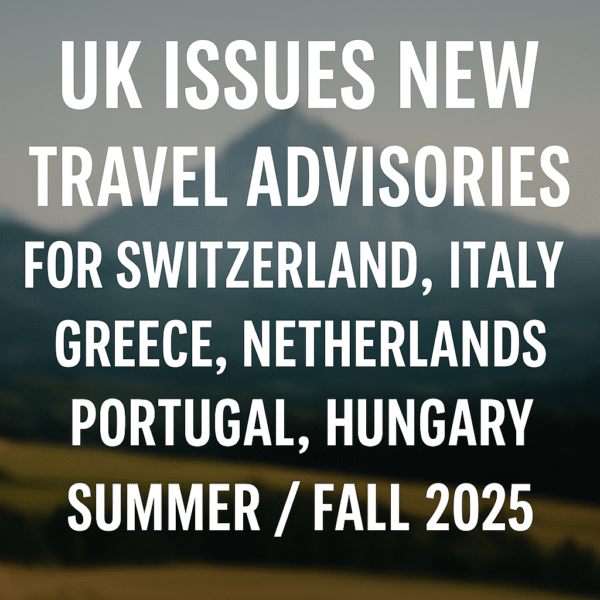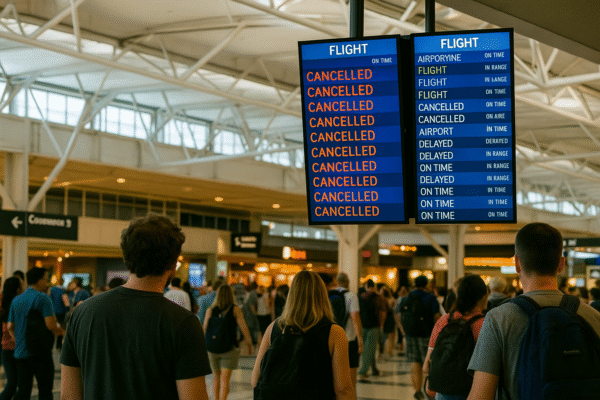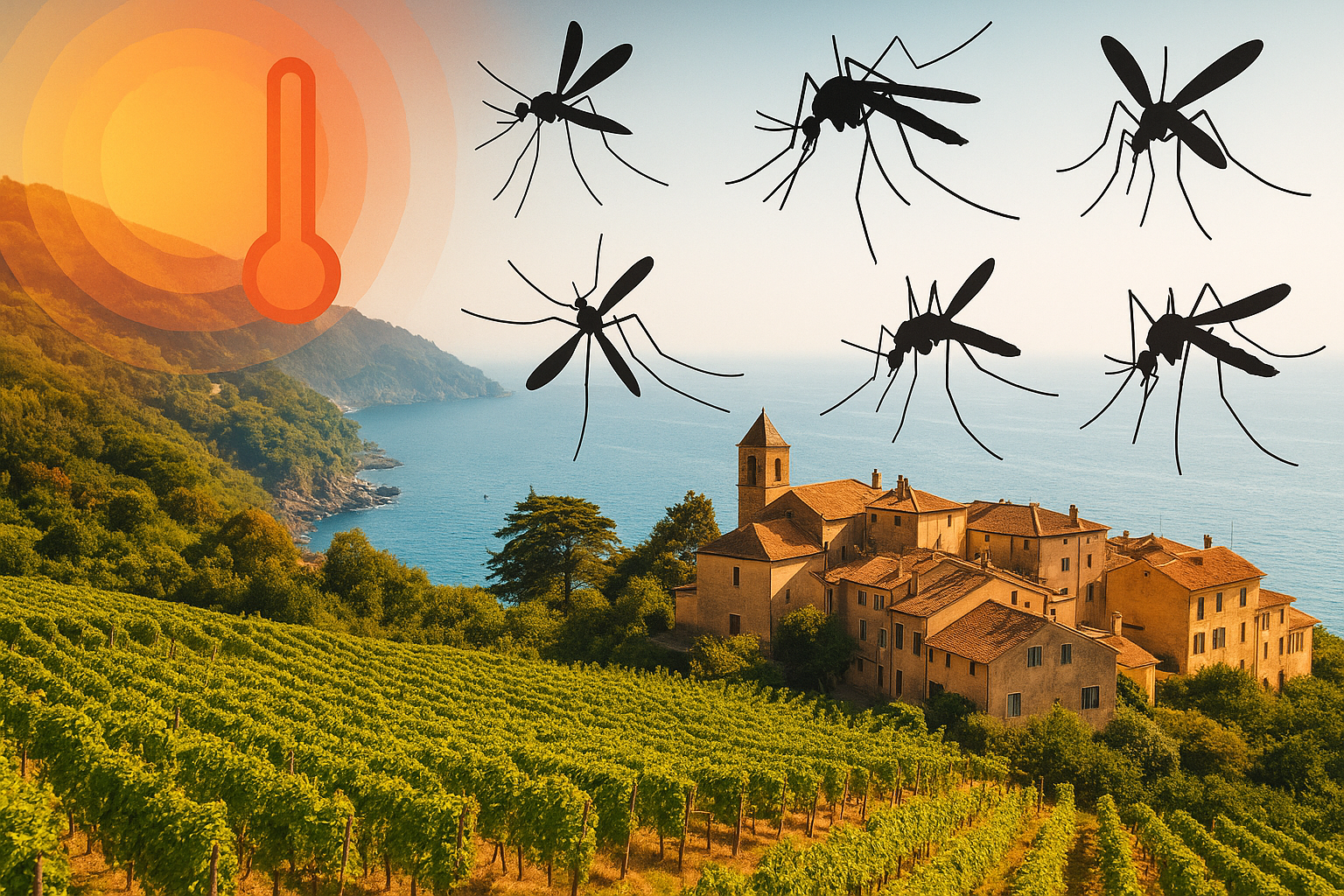As Europe braces for another record-breaking summer, popular destinations like France, Italy, Spain, and Cyprus are not just contending with heatwaves and wildfires—but also a surge in mosquito-borne diseases. According to the latest warning from the European Centre for Disease Prevention and Control (ECDC), climate change is accelerating the spread of invasive mosquito species, leading to a longer and more intense mosquito season across the continent.
These new ecological conditions are creating a breeding ground for diseases such as dengue, chikungunya, Zika, and West Nile virus, once thought to be confined to tropical climates. Travelers planning summer holidays in Europe are now being advised to take proactive health precautions to avoid infection.
Climate Change and Mosquito Migration in Europe
Rising global temperatures and shifts in precipitation patterns have created optimal conditions for mosquitoes to thrive in parts of Europe where they were previously rare or absent. Milder winters allow mosquitoes to survive year-round, while warmer summers extend breeding seasons and increase the number of mosquito generations per year.
The ECDC now considers the presence of these vectors not just a seasonal nuisance but a growing public health concern that is reshaping how European nations manage infectious disease threats during the summer.
Key Mosquito Species to Watch in Europe
- Aedes albopictus (Asian tiger mosquito):
Once a tropical species, this mosquito is now present in 16 European countries and more than 360 regions—up from 114 regions just a decade ago. Known to transmit dengue, Zika, and chikungunya, it has established strongholds in Italy, France, and Spain. - Aedes aegypti (Yellow fever mosquito):
Re-emerging in areas like Cyprus, this mosquito poses serious risks for yellow fever and dengue outbreaks. Local authorities have ramped up vector control operations to curb its spread. - Culex pipiens (Common house mosquito):
Common across Europe, this species is the primary vector for West Nile virus, a disease that can lead to neurological complications. Outbreaks in Greece and northern Italy have placed healthcare systems on alert.
Surging Case Numbers and Earlier Outbreaks
The rise in mosquito activity is being matched by a spike in confirmed disease cases across Europe:
- Dengue fever: In 2024, 304 locally acquired cases were reported, more than double the 130 cases in 2023.
- West Nile virus: A staggering 1,436 cases were recorded in 2024 across 19 countries and 212 regions.
- Chikungunya: In 2025, France recorded six early-season outbreaks, with cases appearing as early as May—two months earlier than previous years.
Southern France, northern Italy, and coastal Spain are now considered active risk zones, with healthcare officials intensifying public awareness campaigns.
What Travelers and Locals Can Do: ECDC Prevention Guidelines
The ECDC has issued travel advisories urging residents and visitors to take both personal and community-based mosquito control measures.
Personal Protective Steps:
- Apply insect repellent on exposed skin, particularly during dawn and dusk.
- Wear long-sleeved clothing, pants, and hats to reduce bite exposure.
- Use mosquito nets or stay in screened accommodations.
- Post-travel precautions: Avoid mosquito-prone areas for three weeks after visiting tropical regions, to reduce the risk of local transmission upon return.
Environmental and Community Actions:
- Eliminate stagnant water: Buckets, flowerpots, birdbaths, and clogged gutters are key breeding sites.
- Use larvicides for larger water bodies during outbreak periods.
- Engage local communities: Public cooperation is essential in suppressing breeding sites, especially in tourist-heavy regions.
Destination Spotlight: Country-Specific Trends
- France: Early-season chikungunya outbreaks in Provence and Occitanie regions have prompted localized spraying operations and awareness drives.
- Italy: Northern regions like Emilia-Romagna are seeing increased West Nile activity, while Tuscany and Lazio remain under monitoring for dengue clusters.
- Spain: Valencia and Andalusia are facing earlier-than-normal mosquito activity, raising concerns for local transmission.
- Cyprus: The return of Aedes aegypti has forced the health ministry to impose tighter border surveillance and public sanitation campaigns.
Long-Term Outlook: Mosquito Seasons Will Continue to Expand
The World Health Organization (WHO) and ECDC forecast that mosquito-borne diseases will continue to increase across Europe as global temperatures rise and weather becomes more unpredictable. Urban expansion, global travel, and insufficient mosquito control infrastructure are compounding the problem.
By 2030, researchers expect that more than 50 percent of Europe’s population may live in regions where mosquito-borne illnesses could become endemic during summer months unless climate mitigation and public health adaptation measures are taken.
Planning Summer Travel? Stay Informed, Stay Protected
Europe remains one of the most desirable destinations for global travelers. Whether it’s the vineyards of Bordeaux, the coastal cliffs of Amalfi, or the beaches of Barcelona, tourists can still safely enjoy their holiday by following mosquito prevention best practices.
As climate change reshapes travel safety norms, informed and cautious travel becomes essential. Stay updated with advisories from national health ministries and European health authorities, and make mosquito protection a part of your summer packing list.
By doing so, travelers can enjoy the beauty and culture of Europe—without the bite.
For more travel news like this, keep reading Global Travel Wire





